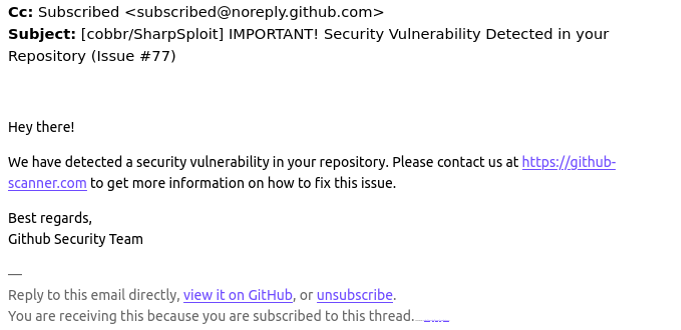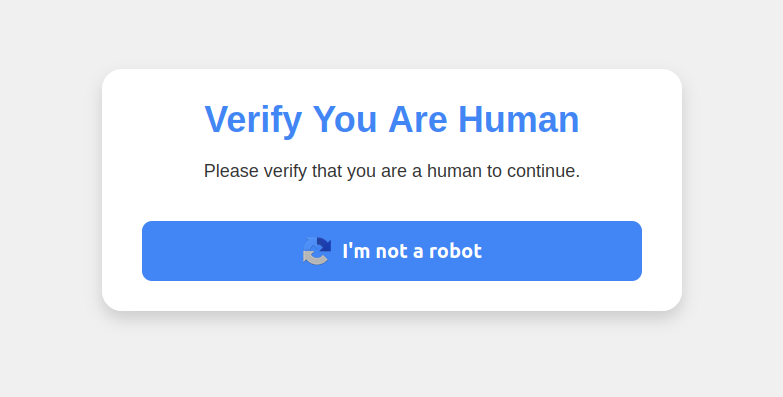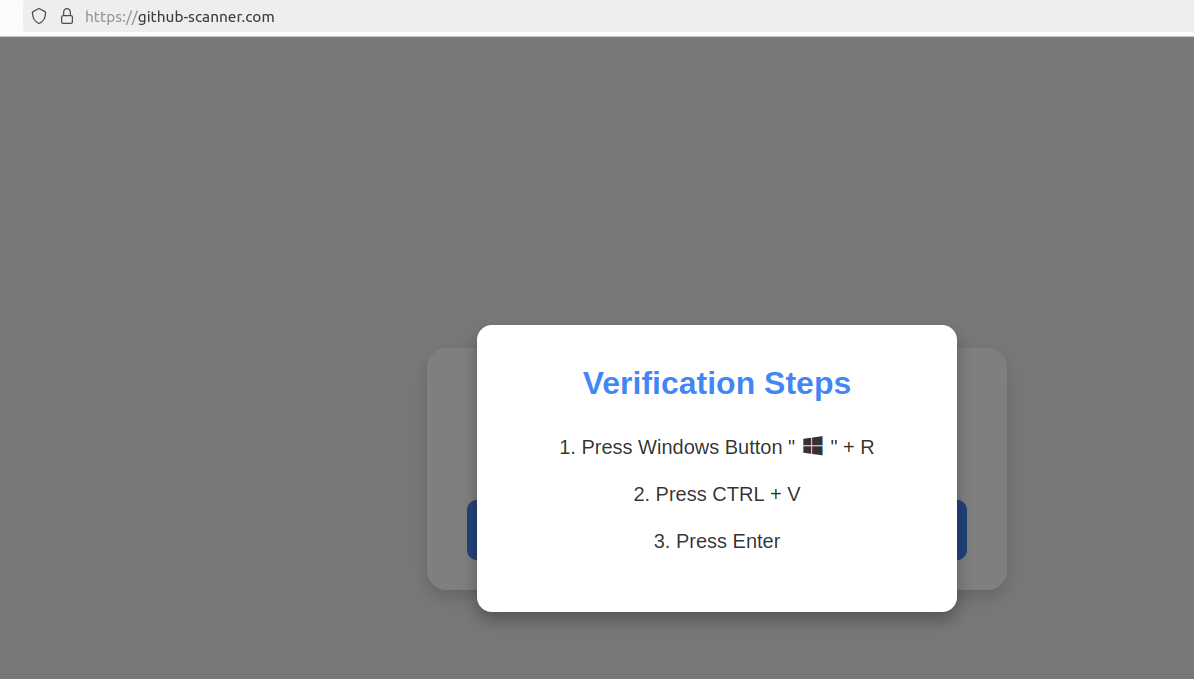[ad_1]
Many GitHub customers this week acquired a novel phishing electronic mail warning of vital safety holes of their code. Those that clicked the hyperlink for particulars had been requested to differentiate themselves from bots by urgent a mix of keyboard keys that causes Microsoft Home windows to obtain password-stealing malware. Whereas it’s unlikely that many programmers fell for this rip-off, it’s notable as a result of much less focused variations of it are prone to be much more profitable towards the typical Home windows consumer.
A reader named Chris shared an electronic mail he acquired this week that spoofed GitHub’s safety staff and warned: “Hey there! We have now detected a safety vulnerability in your repository. Please contact us at https://github-scanner[.]com to get extra data on find out how to repair this difficulty.”

Visiting that hyperlink generates an internet web page that asks the customer to “Confirm You Are Human” by fixing an uncommon CAPTCHA.

This malware assault pretends to be a CAPTCHA meant to separate people from bots.
Clicking the “I’m not a robotic” button generates a pop-up message asking the consumer to take three sequential steps to show their humanity. Step 1 includes concurrently urgent the keyboard key with the Home windows icon and the letter “R,” which opens a Home windows “Run” immediate that can execute any specified program that’s already put in on the system.

Executing this collection of keypresses prompts the built-in Home windows Powershell to obtain password-stealing malware.
Step 2 asks the consumer to press the “CTRL” key and the letter “V” on the identical time, which pastes malicious code from the location’s digital clipboard.
Step 3 — urgent the “Enter” key — causes Home windows to launch a PowerShell command, after which fetch and execute a malicious file from github-scanner[.]com referred to as “l6e.exe.”
PowerShell is a robust, cross-platform automation device constructed into Home windows that’s designed to make it less complicated for directors to automate duties on a PC or throughout a number of computer systems on the identical community.
In response to an evaluation on the malware scanning service Virustotal.com, the malicious file downloaded by the pasted textual content is known as Lumma Stealer, and it’s designed to snarf any credentials saved on the sufferer’s PC.
This phishing marketing campaign could not have fooled many programmers, who little question natively perceive that urgent the Home windows and “R” keys will open up a “Run” immediate, or that Ctrl-V will dump the contents of the clipboard.
However I guess the identical method would work simply high-quality to trick a few of my much less tech-savvy associates and relations into operating malware on their PCs. I’d additionally guess none of those folks have ever heard of PowerShell, not to mention had event to deliberately launch a PowerShell terminal.
Given these realities, it will be good if there have been a easy solution to disable or a minimum of closely prohibit PowerShell for regular finish customers for whom it may develop into extra of a legal responsibility.
Nevertheless, Microsoft strongly advises towards nixing PowerShell as a result of some core system processes and duties could not perform correctly with out it. What’s extra, doing so requires tinkering with delicate settings within the Home windows registry, which could be a dicey enterprise even for the discovered.
Nonetheless, it wouldn’t damage to share this text with the Home windows customers in your life who match the less-savvy profile. As a result of this explicit rip-off has a substantial amount of room for progress and creativity.
[ad_2]
